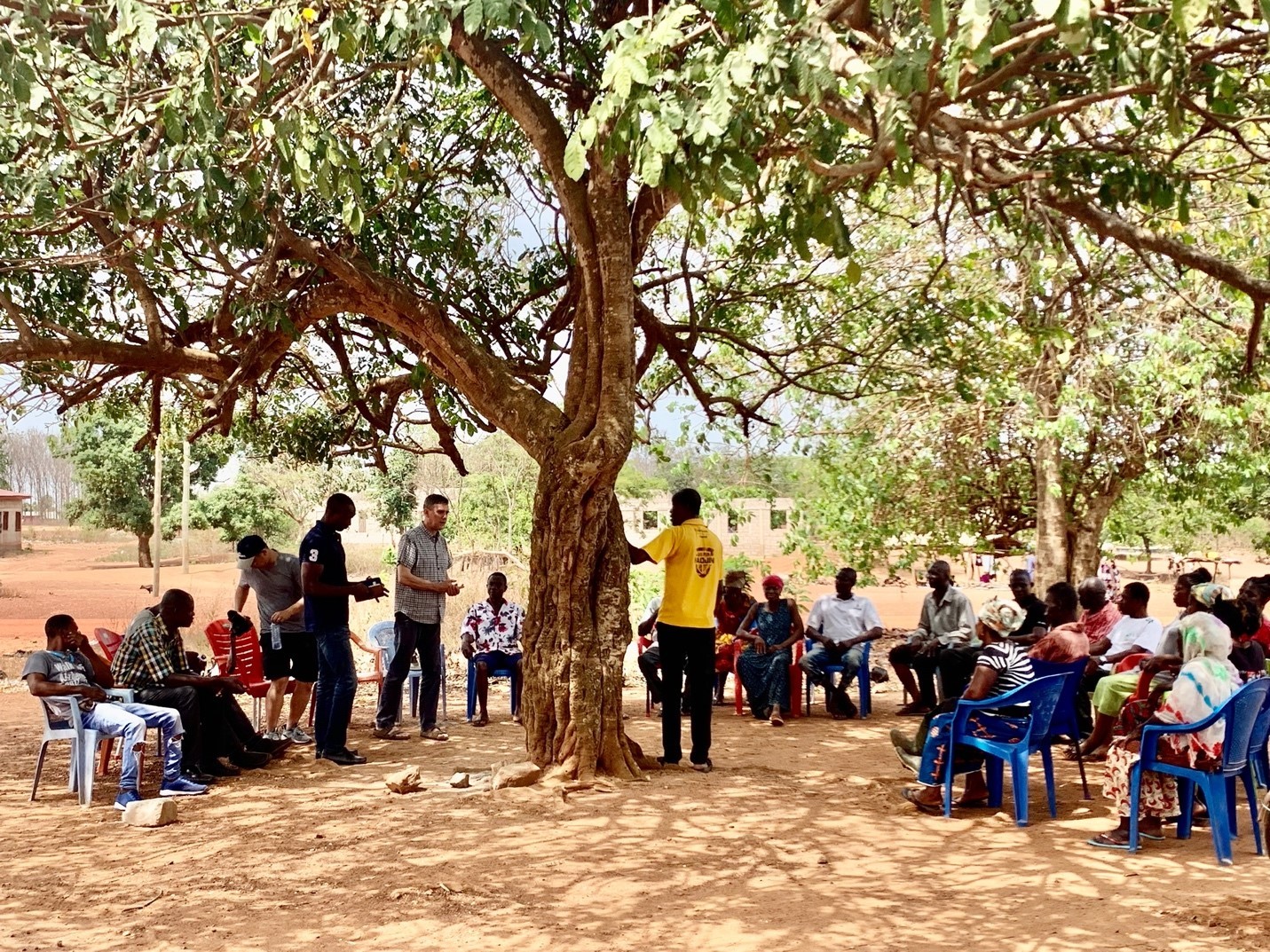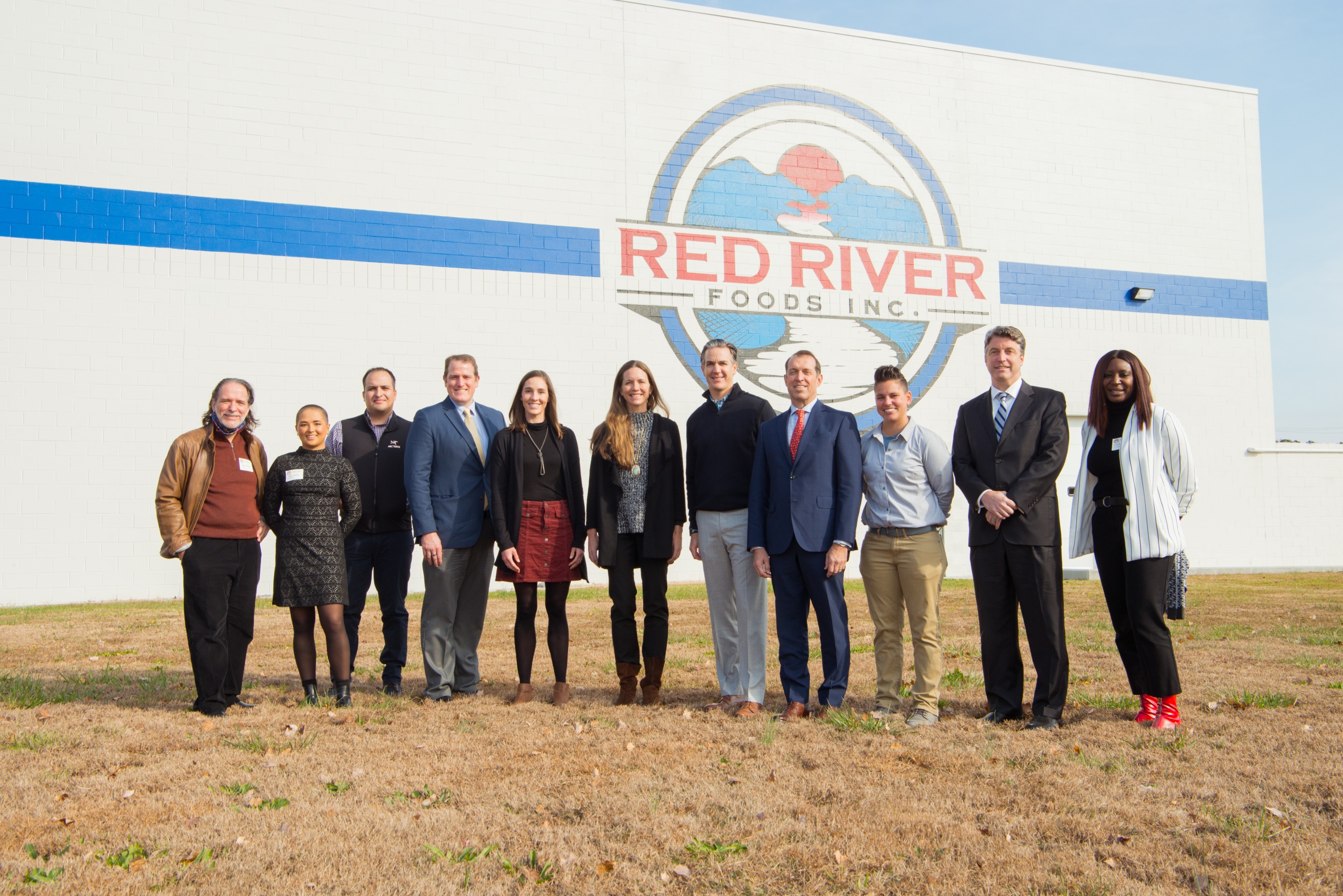“One of the things that really strikes me about this particular partnership that we at Prosper Africa are really proud to support is that we’ve all seen the power of what a company like Red River Foods can do in investing in Africa. When a company like Red River Foods comes in, it has the ability to not only create jobs and set standards for an area, but also really to stabilize entire regions.”
— Leslie Marbury Acting Chief Operating Officer, Prosper Africa
“We know that we can’t build a sustainable supply chain alone. This ambitious mission requires strategic partners across the spectrum and having public-private partnerships is a positive step in that direction. I hope to see similar partnerships that can bring real value to cashew-producing communities and at home in the United States.”
— Dan Phipps CEO, Red River Foods
When most people think about cashews, they rarely consider the long journey from tree to your favorite trail mix. For exporters like Richmond, Virginia-based Red River Foods, optimizing production is a top priority.
Red River Foods sources nuts, dried fruit, and other specialty snack items from around the world. The company sources a significant amount of raw cashews from West Africa that are processed into edible kernels in Vietnam. The company has worked for over a decade to improve this inefficient supply chain, which was further hampered by logistic constraints during the COVID-19 pandemic.
Now, backed by $3 million in U.S. Government funding, Red River Foods will invest an additional $47 million to expand its cashew sourcing and processing facilities in West Africa. This partnership, which is implemented through USAID’s West Africa Trade & Investment Hub, will streamline and strengthen the company’s supply chain and increase jobs for African and American workers.
Facing barriers to growth
West Africa produces nearly half of the world’s raw cashews and yet 90 percent are shipped out of Africa for processing. Cashew farmers and exporters only receive a fraction of the final retail price, which means West African economies miss out on a larger portion of the rapidly growing cashew market. And for companies like Red River Foods, this has meant moving cashews around the entire globe—from West Africa to Vietnam to the United States.
“Obviously, there are significant cost implications,” said Juliet Wiebe-King, Vice President of Business Development with Red River Foods. “Over the last year, we’ve seen freight rates skyrocket and global shipping lines disrupted. Creating a much shorter transport path cuts down on transportation costs and allows for more diversification in supply.”
Red River Foods had been sourcing cashews from West Africa for over 10 years. As the company looked towards expansion, vertically integrating its supply chain became increasingly important.
“Sustainability is core to everything we do,” said Wiebe-King. “We’re committed to ensuring responsible supply chains by empowering communities, minimizing our environmental impacts, and doing right from people to products to the planet.”
Shifting processing to West Africa seemed like a promising solution. However, Red River Foods faced challenges along the way, including a lack of an experienced labor force and limited processing infrastructure. The Red River Foods team evaluated a few joint venture and investment opportunities to boost cashew processing in West Africa but didn’t find the right fit. Many entrepreneurs they met either had no cashew experience or had based their entire businesses plans on guidance from NGOs that also had no cashew-processing experience.

Bringing jobs to Côte d’Ivoire and Virginia
At the same time, through the Prosper Africa initiative, the USAID Trade Hub was looking for partners to co-invest in opportunities that create jobs and increase trade between the United States and West Africa. Together, USAID and Red River Foods shaped an investment that would support cashew production capacity in West Africa, simultaneously boosting local jobs and giving Red River Foods the opportunity to move into the market.
Through this $50 million co-investment partnership with USAID, Red River Foods is building a processing facility in Côte d’Ivoire—the company’s first facility on the continent.
“We’re very excited to finally process cashews in West Africa,” said Wiebe-King. “Not only are you able to keep more economic benefit within the local community, you are also able to cut down on the carbon footprint. With our facility in the strategic location of Côte d’Ivoire—the largest producer of raw cashew nuts—our raw material will literally be in our backyard.”
The company will also train nearly 11,000 farmers on increasing production and quality, meeting U.S. and European food safety standards, and more. And the impacts of this training will live beyond the life of the USAID–Red River Foods co-investment.
“We’re providing farmers with information that will allow them to change their practices and increase yields and quality,” said Wiebe-King. “How to correctly prune and thin your cashew trees, how to separate the apple from the cashew, how to properly dry your cashew after harvest, which is a big factor in cashew quality. They will be able to carry this on for years.”
USAID anticipates that this training and the farmers’ partnership with Red River Foods will have positive ripple effects throughout farmers’ communities. Jim Winkler, who serves as the senior economic advisor to the USAID Trade Hub, says the farmers being trained now can pass on what they’re learning to the next generation of farmers, giving them the knowledge and tools to benefit from the ever-expanding cashew market too.
Just as important, an immediate, tangible benefit is the additional income farmers are currently making by growing and then selling cashews to Red River Foods.
“Once they earn that cash, those farmers buy goods and services inside their community,” Winkler said. “And then you’re getting a multiplier effect around that community from their local mom-and-pop shops. And beyond that, we’re going to see cash flow in communities where it’s hard for governments and other NGOs to reach. From the farmers who grow the cashews to the truckers who will transport them, you have people across the supply chain in West Africa that will benefit before those cashews even reach Red River Foods’ warehouses.”
The co-investment won’t only boost cashew production in West Africa, it will also maximize efficiency in Red River Foods’ Richmond location since the company was able to open a new state-of-the-art warehouse right near Richmond’s airport. This new warehouse has high-density racking systems and temperature control, allowing Red River Foods to maximize capacity while ensuring product freshness and integrity.

Building future U.S.–Africa partnerships
In the past two years, USAID’s Trade Hub has supported 69 investments into the region, including partnerships like the one with Red River Foods. The Hub has partnered with Burt’s Bees and Koster Keunen to boost Ghana’s beekeeping industry, with Savannah Fruits Company to support the export shea butter supply chain, and with Pacha Soap to bring sustainably sourced palm oil into high-end bath products sold at stores such as Whole Foods.
“One of the things that strikes me about this particular partnership that we at Prosper Africa are really proud to support is that we’ve all seen the power of what a company like Red River Foods can do in investing in Africa,” said Leslie Marbury, Acting Chief Operating Officer of Prosper Africa. “When a company like Red River Foods comes in, it has the ability to not only create jobs and set standards for an area, but also to stabilize entire regions.”
The USAID Trade Hub’s work represents one aspect of the U.S. Government’s commitment to boosting U.S.–Africa trade and investment through the Prosper Africa initiative. Since launching Prosper Africa in 2019, the U.S. Government has supported 800 deals across 45 African countries for an estimated value of $50 billion. By offering tools to mitigate risk and overcome trade and investment barriers, Prosper Africa is making it easier than ever to find new opportunities in African markets.
“We’re seeing U.S. companies not only looking to Africa for their consumer markets, but also looking for ways they can expand their supply chains in those markets,” said Winkler. “These companies are saying, ‘Hey, we can now work in markets where the U.S. Government is working to de-risk opportunities.’”
And it’s that kind of support that helped Red River Foods make their vision of integrated supply chains a reality.
“We know that we can’t build a sustainable supply chain alone,” said Red River Food CEO Dan Phipps. “This ambitious mission requires strategic partners across the spectrum and having public-private partnerships is a positive step in that direction. I hope to see similar partnerships that can bring real value to cashew producing communities and at home in the United States.”

